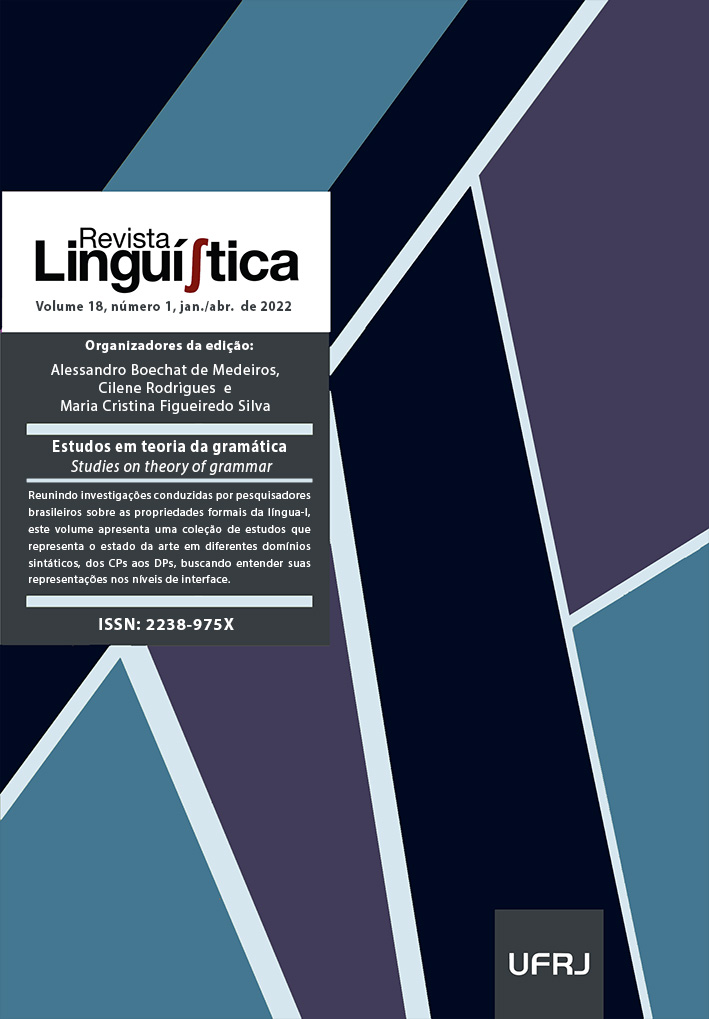The expression of kind in Brazilian Portuguese bare nouns and definite generic
DOI:
https://doi.org/10.31513/linguistica.2022.v18n1a52933Keywords:
bare nominals, definite generics, singular kinds, plural kinds, Brazilian Portuguese, (in)definitesAbstract
This paper investigates kind expressions in Brazilian Portuguese, where four forms compete: singular and plural bare nominals, Periquito está em extinção and Periquitos estão em extinção, and singular and plural generic definites, O periquito está em extinção e Os periquitos estão em extinção. It argues that this system is evidence that natural languages differentiate two individuals: singular kinds, and maximal sums. These individuals entertain distinct relations with their “elements”. Individuals realize a kind and are parts of maximum sums. We argue that the difference is: singular expressions denote the atomic kinds, plurals, the plural individual. The definite generic carries a presupposition of familiarity, while bare nominals are indefinites, they do not carry presuppositions.Downloads
Downloads
Published
Issue
Section
License
Authors who publish in the Revista Linguí∫tica agree with the following terms:
The authors maintain their rights, ceding to the journal the right to first publication of the article, simultaneously submitted to a Creative Commons license permitting the sharing with third-parties of published content as long as it mentions the author and its first publication in the Revista Linguí∫tica.
Authors may enter into additional agreements for the non-exclusive distribution of their published work (for example, posting in online institutional or non-profit repositories, or book chapters) so long as they acknowledge its initial publication in the Revista Linguí∫tica.

The journal Revista Linguí∫tica is published by the Post-Graduate program in Linguistics of UFRJ and employs a Creative Commons - Attribution-NonCommercial 4.0 International (CC-BY-NC).









